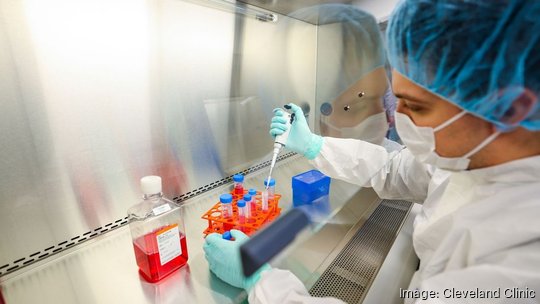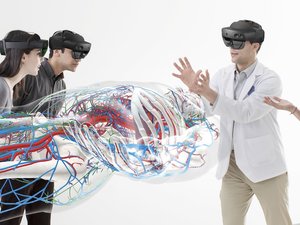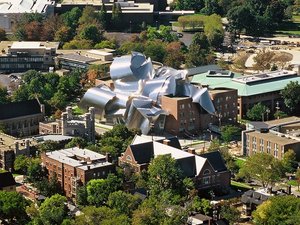
Case Western Reserve University has redeveloped the former BioEnterprise Inc. building in University Circle into a new startup incubator for early-stage businesses in the biotech, health tech and engineering fields.
The incubator is part of the Cleveland Innovation District, the $565 million, public-private initiative started in January 2021 to invest in the city's leading health care, research and education institutions and put Cleveland on the world map for virus and pathogen innovation.
Since the district's founding, Cleveland Clinic, University Hospitals, MetroHealth, Cleveland State University and Case Western Reserve (CWRU) have created more than 2,600 jobs and spent nearly $1.2 billion on research and innovation throughout the district, the partners recently reported.
"The support to CWRU from the CID [Cleveland Innovation District] was to expand the research enterprise," said Michael Oakes, senior vice president for research at CWRU's Office of Research and Technology Management, in an email.
For Case Western Reserve, this expansion is coming in the forms of research spending, investing in people and constructing a 187,000-square-foot Interdisciplinary Science and Engineering Building on the university's quadrangle.
"The incubator is a new initiative to translate the research discoveries supported by CID to commercial products where they can positively impact society and the economic health of our region," Oakes said.
The new incubator could help Northeast Ohio:
- Retain locally grown companies.
- Attract new companies that want to benefit from the region's research and health care institutions.
- Create jobs from technicians to company leadership.
- Attract capital.
- Recruit talent.
- Burnish its reputation as a hub for health and science technology development and implementation.
For the university, the idea is to create state-of-the-art space for new companies that would scale to fit their needs. The four-story, 80,000-square-foot incubator building hosts 30,000 square feet of wet lab space with lease options ranging from a single eight-foot bench to large private labs. Tenants also can choose dry lab and administrative spaces, including private and offices and cubicles.
The building hosts several CWRU startups — some from the building's BioEnterprise days — including Convelo Therapeutics Inc. and Haima Therapeutics LLC.
"We're borrowing best practices from leading places in Boston and San Francisco" to apply to the startup incubator, Oakes said.
The university also is providing resources that are unrelated to incubator space, such as mentoring and access to capital.
"The university connection gives an incubator a very important comparative advantage with respect to specialized and very expensive equipment, licensing and access to cutting-edge tech," he said.
A year ago, BioEnterprise turned over its assets, including its bioscience company incubator, and operations to three of its founding organizations — Case Western Reserve, Cleveland Clinic Foundation and University Hospitals — following an abrupt shutdown in 2020.








